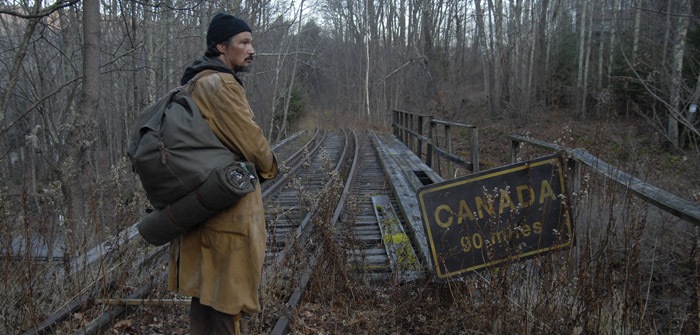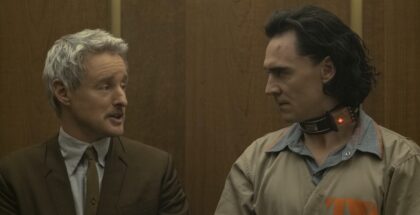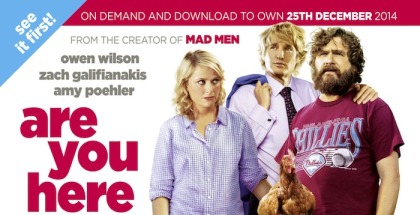VOD film review: Stake Land
Review Overview
Nick Damici
8Cartoonish villains
6Anton Bitel | On 23, Feb 2018
Director: Jim Mickle
Caat: Nick Damici, Conno Paolo, Kelly McGillis, Michael Cerveris, Danielle Harris, Sean Nelson
Certificate: 15
“Call me Martin,” says the voiceover that opens Stake Land, as we see the young man himself (Connor Paolo) riding in the passenger seat of a car beside a much older man (Nick Damici). “I’ve seen things you wouldn’t believe. Things a boy shouldn’t see. But I’m not a normal boy anymore, and it ain’t a normal world. Get used to it. That’s what Mister tells me.”
It is an opening line that places Jim Mickle’s second film (following 2006’s Mulberry Street, also co-written by Damici) in an American epic tradition that can be traced back to Herman Melville’s 19th-century novel Moby-Dick (first line: “Call me Ishmael”). Of course, what Mister, the captain of this vehicle, hunts is not whale, but something else – something hinted at in his adopted assistant’s very name. For, as its characters head northwards across a post-apocalyptic America overrun by bloodsucking former humans, Stake Land, much like George A. Romero’s Martin (1978), is taking the vampire mythos for a revisionist spin. Here, man and boy, reminiscent of the father-and-son team from The Road (whether Cormac McCarthy’s 2006 novel or John Hillcoat’s 2009 adapation), if not actually blood relatives, are both traversing and surveying a fallen land – and, while the fast, zombie-like undead present a near constant nocturnal threat to them in their attempts to get to the mythical New Eden, these ‘vamps’ prove less important – and in same cases less dangerous – than the humans encountered along the way.
In their travels, Mister and Martin are joined by a nun (Kelly McGillis), whom they rescue from rape, a young pregnant woman (Danielle Harris), who hitches a ride, and by a former Marine (Sean Nelson), whom they find bound on the road. Together, however temporarily, these five form a sort of family, bonded by their common humanity and will to survive, as they pass through locked-down barter communities (where a spark of civilisation remains lit) and white supremacist doomsday religious cults (who regard the vampires as godsent allies-cum-weapons in purging the world of sinfulness). This landscape, although dressed in the trappings of genre, is a thinly veiled exaggeration of America’s current, divisive culture wars, with Mickle and Damici leaving little doubt as to where they themselves stand or what is at stake for humanity.
Episodic, even picaresque, in its meandering journey through Martin’s rites of passage, Stake Land charts a nation at odds with itself, indeed devouring its own – and the hope that it locates for a new future lies elsewhere, across a border both literal and metaphorical, in a place which Mister implicitly understands has no room for a ruthless killer like himself, but that might just prove a well-earned Paradise for Martin.




















